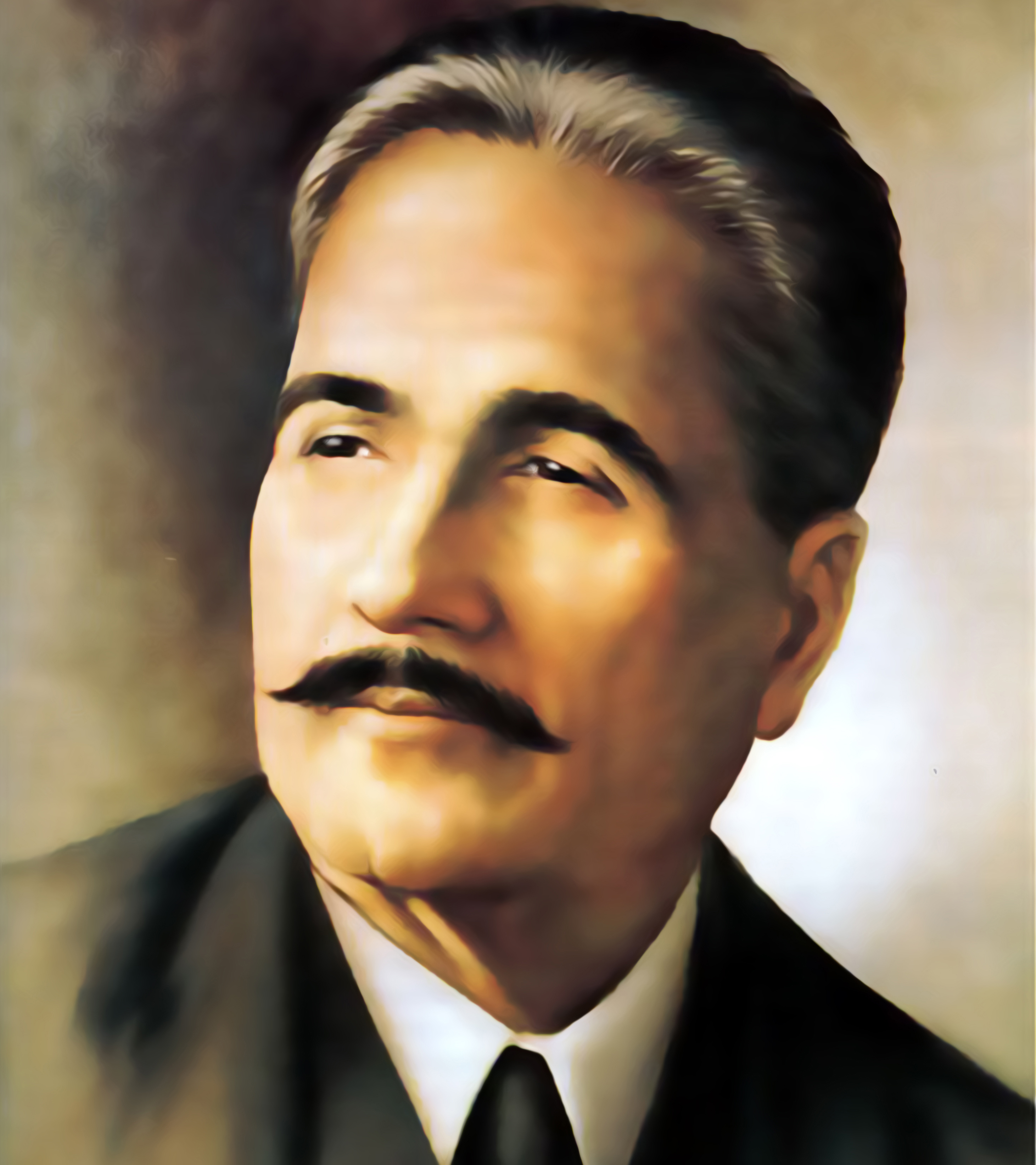
Allama Iqbal
Biography
Iqbal was an heir to a very rich literary, mystic, philosophical and religious tradition. He imbibed and assimilated all that was best in the past and present Islamic and Oriental thought and culture. His range of interests covered Religion, Philosophy, Art, Politics, Economics, the revival of Muslim life and universal brotherhood of man. His prose, not only in his national language but also in English, was powerful. His two books in English demonstrate his mastery of English. But poetry was his medium par excellence of expression. Everything he thought and felt, almost involuntarily shaped itself into verse.
Personal life
Iqbal was born on 9 November 1877 in Sialkot within the Punjab Province of British India (now in Pakistan). His grandparents were Kashmiri Pandits, Brahmins of the Sapru clan from Kashmir who converted to Islam. In the 19th century, when the Sikh Empire was conquering Kashmir, his grandfather's family migrated to Punjab. Iqbal often mentioned and commemorated his Kashmiri lineage in his writings.
Iqbal's mother, who died on 9 November 1914. Iqbal expressed his feeling of pathos in a poetic form after her death.
Iqbal's father, Sheikh Noor Muhammad (died 1930), was a tailor, not formally educated but a religious man. Iqbal's mother Imam Bibi, a Punjabi Muslim from Sialkot, was described as a polite and humble woman who helped the poor and her neighbours with their problems. She died on 9 November 1914 in Sialkot. Iqbal loved his mother, and on her death he expressed his feelings of pathos in a poetic form elegy.
Works
Iqbal is admired as a prominent poet by Indians, Pakistanis, Iranians and other international scholars of literature.
Though Iqbal is best known as an eminent poet, he is also a highly acclaimed "Muslim philosophical thinker of modern times". His first poetry book, The Secrets of the Self, appeared in the Persian language in 1915, and other books of poetry include The Secrets of Selflessness, Message from the East and Persian Psalms. Amongst these, his best known Urdu works are The Call of the Marching Bell, Gabriel's Wing, The Rod of Moses and a part of Gift from Hijaz. Along with his Urdu and Persian poetry, his Urdu and English lectures and letters have been very influential in cultural, social, religious and political disputes.
